Monday Feb 23, 2026
Monday Feb 23, 2026
Thursday, 26 September 2024 15:02 - - {{hitsCtrl.values.hits}}
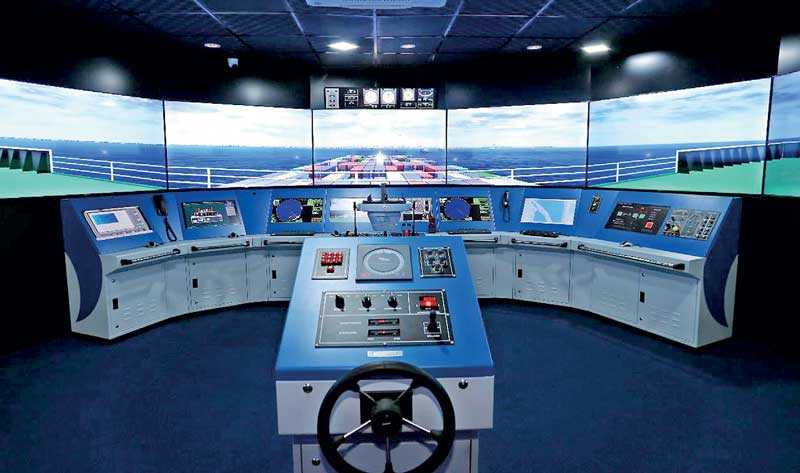
360 degree view navigation bridge simulator
|
Manaco Marine (Pvt) Ltd CEO and SMTI Director Capt. Nalin Peiris
|
|
SMTI Principal Master Mariner
|
The Southern Maritime Training Institute (SMTI) is charting a new course for Sri Lankan youth seeking to thrive in the international commercial maritime industry, with a core vision focused on cultivating the next generation of proficient seafarers.
Recognised globally for its quality of training, what sets the SMTI apart from other maritime training centres is its unwavering dedication to comprehensive skill-building programs and providing seafarers with quality maritime training at an affordable cost.
The SMTI made a pioneering move by introducing Sri Lanka’s very first 360° full mission navigation bridge simulator, equipped with cutting-edge technology that replicates real-world maritime scenarios. As the maritime sector continues to evolve, the demand for highly skilled professionals has never been more critical. The 360° full mission navigation bridge simulator at the SMTI Colombo therefore serves to provide students with hands-on training, ensuring that they are well-prepared to navigate the complexities of modern maritime operations, and cultivate the skills and knowledge necessary for success in an increasingly competitive global maritime landscape. Therefore, this groundbreaking achievement in maritime education not only elevates the standard of training available, but also aligns seamlessly with the SMTI’s mission to deliver world-class education and training that meet international benchmarks.
The academic curriculum at the SMTI is meticulously designed to adhere to the highest maritime standards recognised globally. Courses encompass a wide range of subjects, including navigation, maritime safety, ship management, and emergency response, among others. Each program is structured to provide students with a comprehensive understanding of the industry’s complexities, where a blend of theoretical instruction and practical experience ensures that graduates are not only knowledgeable but also confident in their abilities to make critical decisions at sea.
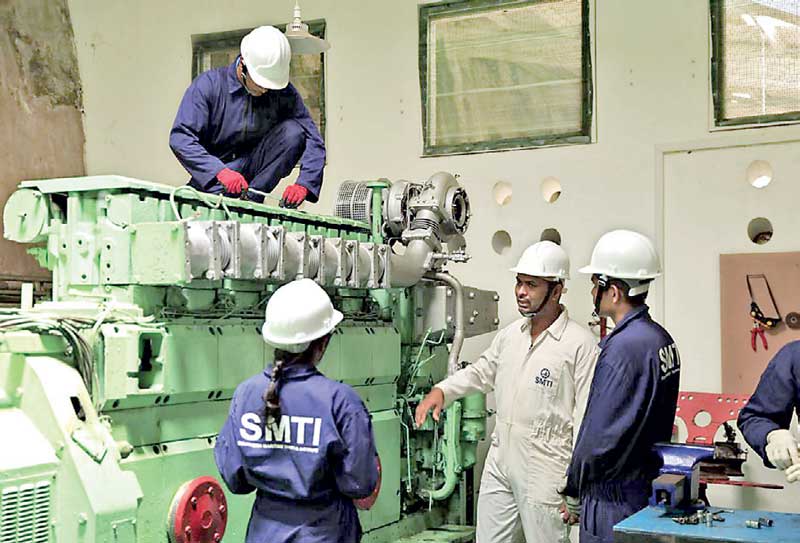
Engine Room Workshop
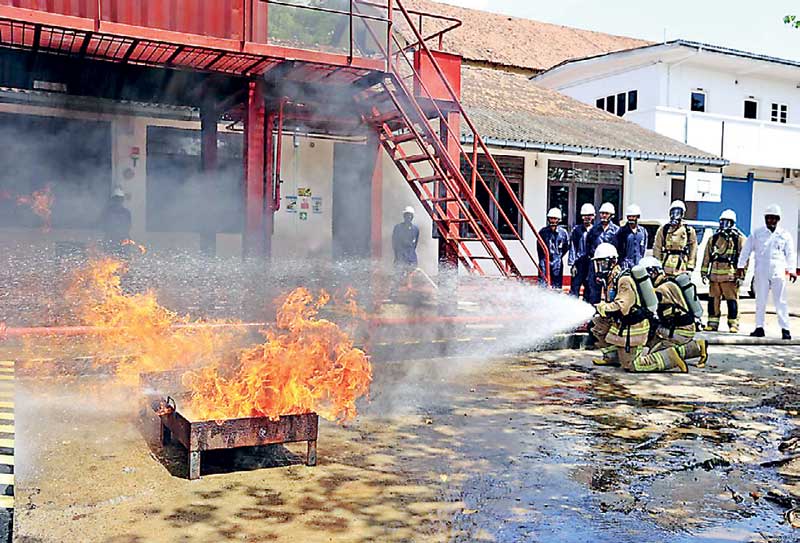
Fire fighting
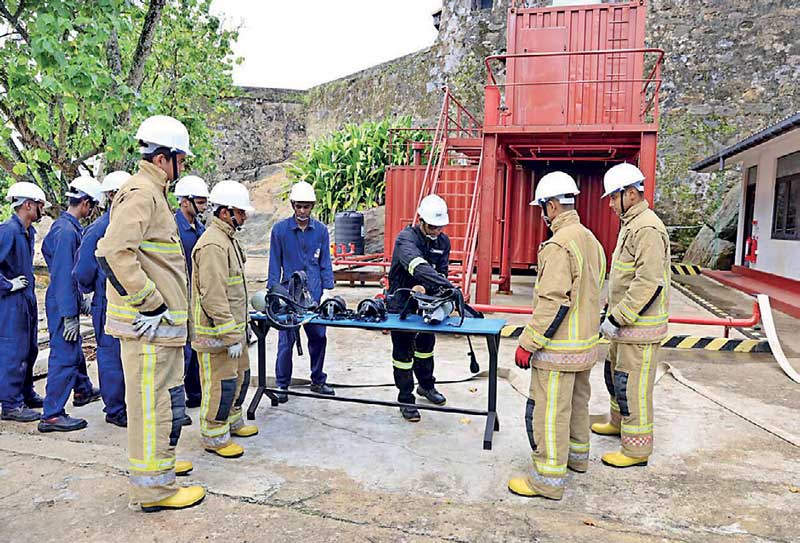
Preparation for fire fighting
In addition, the SMTI’s commitment to continuous improvement means that the curriculum is regularly updated to reflect the latest developments and innovations in the maritime sector. This proactive approach ensures that students are well-prepared to meet the demands of an ever-evolving industry, making them highly competitive candidates in the global job market.
The institute also prides itself on its distinguished academic faculty, comprising industry experts of international repute. These experienced professionals offer invaluable guidance and insights, ensuring students receive top-tier education and training. The faculty’s commitment to excellence plays a pivotal role in preparing students for their future careers in the maritime field.
“Our vision is to be a globally recognised leader in Sri Lanka, providing exceptional education, training, assessment, and certification services to the international maritime industry, ensuring that our graduates are well-prepared to meet the evolving demands of the maritime sector,” stated SMTI Director Capt. Nalin Peiris.
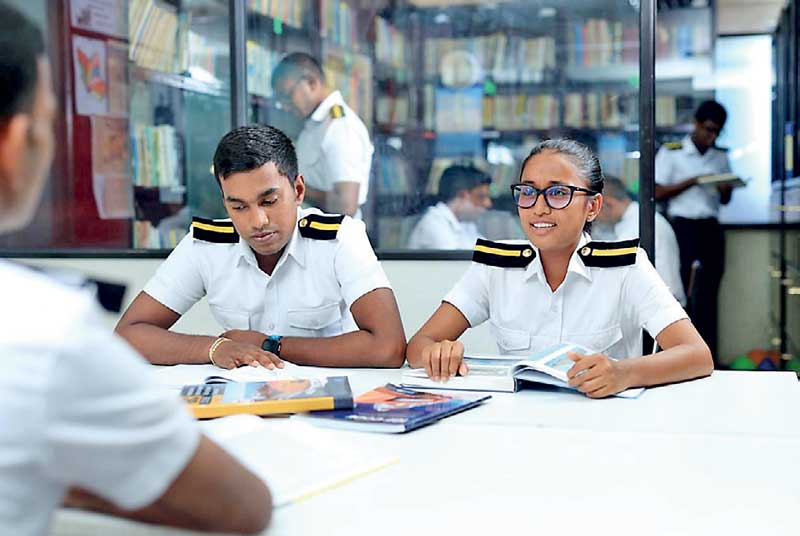
Student Library
Capt. Peiris also highlighted the institute’s broader role in contributing to the economic growth of Sri Lanka. “By training and certifying skilled professionals, we at the SMTI want to play a crucial part in strengthening the maritime sector, which is vital to the nation’s economy. The influx of well-trained maritime professionals will not only enhance the operational efficiency of local shipping and logistics companies, but also position Sri Lanka as a key player in the global maritime industry, providing seafarers who are able to operate modern ships with cutting-edge technology. It is imperative that we provide training to our seafarers in the operation, maintenance, and troubleshooting of these technologies. Additionally, after digitalisation and the standardisation of the construction standards at sea, vessels are becoming more suitable for women to be employed onboard and the SMTI recognises the need to unlock the potential of the maritime sector by speeding up efforts to increase women’s participation by promoting training and employment of Sri Lankan female seafarers.”
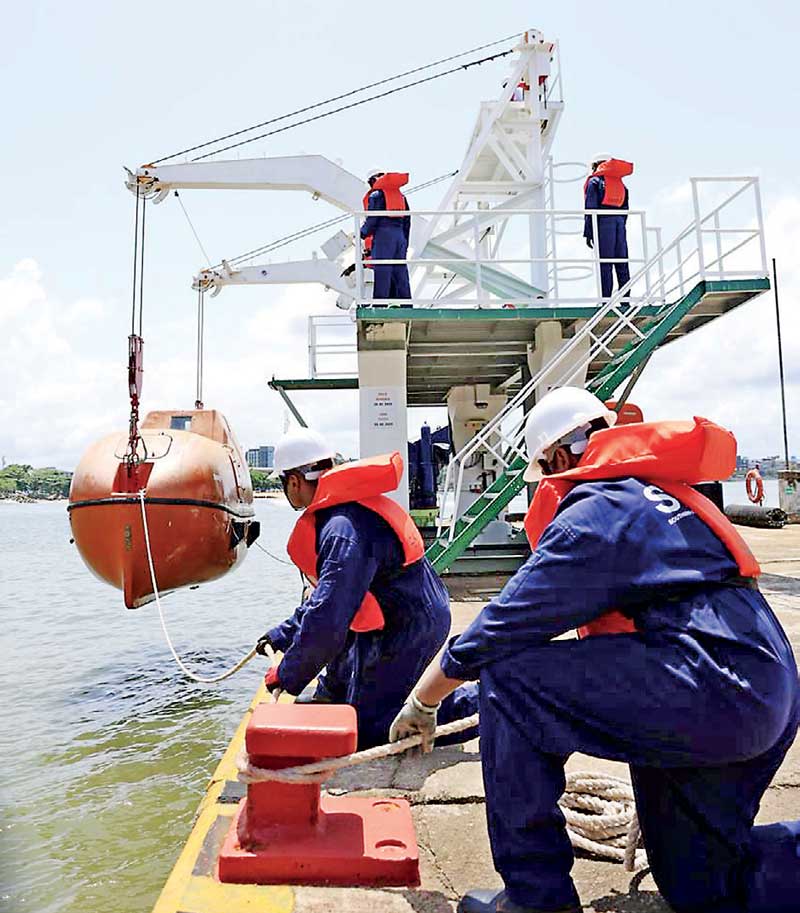
Boat Lowering
The SMTI is also enthusiastic about highlighting the numerous advantages that the maritime industry provides, and is actively seeking partnerships with educational institutions to boost awareness and comprehension of this essential sector. Speaking of this factor, SMTI Principal Capt. M. ArulKumar emphasised: “By collaborating with schools nationwide, we aim to inspire young minds and showcase the exciting career pathways available in maritime education. Through workshops and interactive programs, we want to engage students and educators alike, illustrating how a career in maritime can be both fulfilling and impactful. Our goal is to create a network of informed individuals who understand the significance of the maritime industry and are motivated to pursue careers that contribute to its growth and innovation. Together, we can cultivate a new generation of skilled professionals ready to navigate the future of the maritime world.”
He also explained that the SMTI is taking proactive steps to tackle the significant issue of brain drain affecting Sri Lanka, especially in the Northern and Eastern regions. By generating opportunities for global careers in the maritime industry, the SMTI seeks to retain skilled youth and enable them to forge successful futures within their own country. Through this initiative, the SMTI aims not only to promote individual achievement but also to cultivate local talent and offer a sustainable alternative to migration. Ultimately, this approach contributes to reversing the brain drain and preserving valuable human resources in this sector for the country.
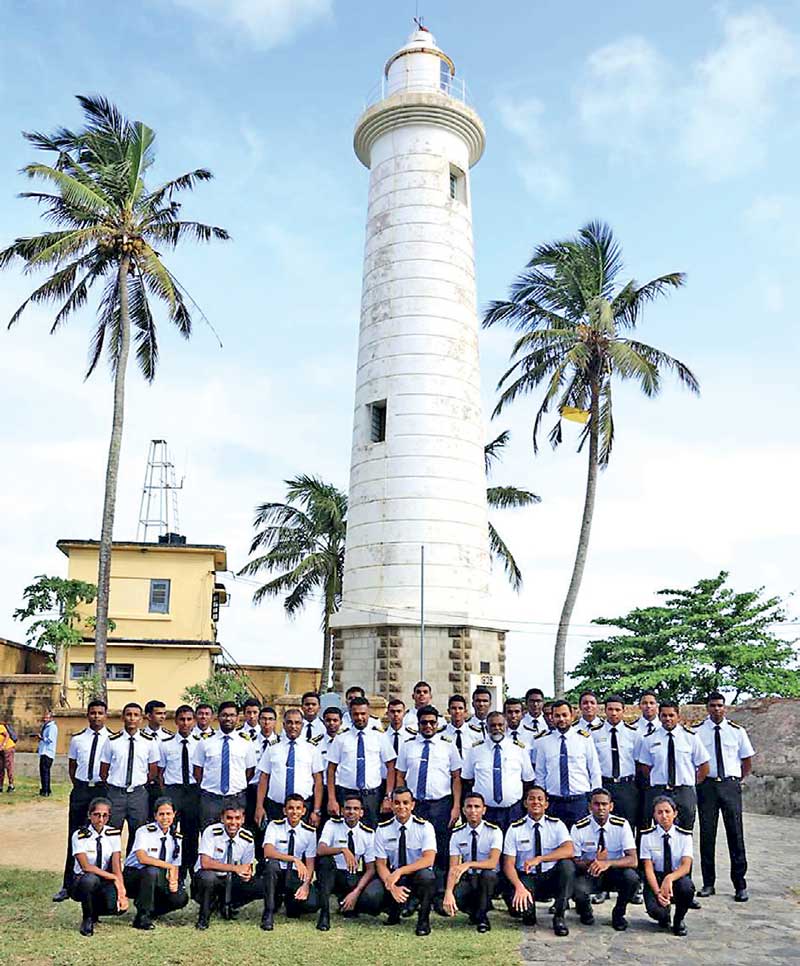
Cadets
Through each of these initiatives, the SMTI today is strategically positioned to shape the future of the maritime workforce. As the maritime industry continues to expand and transform, the SMTI’s proactive approach will empower aspiring maritime professionals to embrace new challenges and seize opportunities, ultimately contributing to the growth and success of Sri Lanka’s maritime sector.